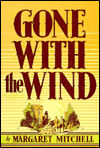Frederik Pohl
In 1936, Pohl joined the Communist Party. However, party elders expelled him, in the belief that the escapist nature of science fiction risked corrupting the minds of youth.
From 1939 to 1943, he was the editor of two pulp magazines - Astonishing Stories and Super Science Stories.
Pohl has been married several times. His first wife was another Futurian, Leslie Perri. In the 1950s he was married to Judith Merril, an important figure in the world of science fiction, with whom he has one daughter. He is currently married to science fiction editor and academic Elizabeth Anne Hull, PhD.
He collaborated with friend and fellow Futurian Cyril M. Kornbluth, co-authoring a number of short stories and several novels, including a dystopian satire of a world ruled by the advertising agencies, The Space Merchants (a belated sequel, The Merchants' War [1984] was written by Pohl alone, after Kornbluth's death). This should not to be confused with "The Merchants of Venus", an unconnected 1972 novella which includes biting satire on runaway free market capitalism and first introduced the Heechee.
A number of his short stories were notable for a satirical look at consumerism and advertising in the 1950s and 1960s: "The Wizard of Pung's Corners", where flashy, overcomplex military hardware prove useless against farmers with shotguns, and "The Tunnel Under the World", where an entire community is held captive by advertising researchers.
From the late 1950s until 1969, he served as editor of Galaxy and if magazines, taking over at some point from the ailing H. L. Gold. Under his leadership, if won the Hugo Award for Best Professional Magazine for 1966, 1967 and 1968.
In the mid-1970s, Pohl acquired and edited novels for Bantam Books, published as "Frederik Pohl Selections"; the most notable were Samuel R. Delany's Dhalgren and Joanna Russ's The Female Man. Also in the 1970s, Pohl reemerged as a novel writer in his own right, with books such as Man Plus and the Heechee series. He won back-to-back Nebula awards with Man Plus in 1976 and Gateway, the first Heechee novel, in 1977. Gateway also won the 1978 Hugo Award for Best Novel. Two of his stories have also earned him Hugo awards: "The Meeting" (with Kornbluth) tied in 1973 and "Fermi and Frost" won in 1986. Another notable late novel is Jem (1980), winner of the National Book Award. Pohl continues to write and had a new story, "Generations", published in September 2005. As of November 2006, he was working on a novel begun by Arthur C. Clarke with the provisional title "The Last Theorem".
His works include not only science fiction but also articles for Playboy and Family Circle. For a time, he was the official authority for the Encyclopedia Britannica on the subject of Emperor Tiberius.
Download Books :
http://rapidshare.com/files/45691729/Pohl__Frederik_-_Heechee.zip

.jpg)

















































































































































































































































































































































































































































































































